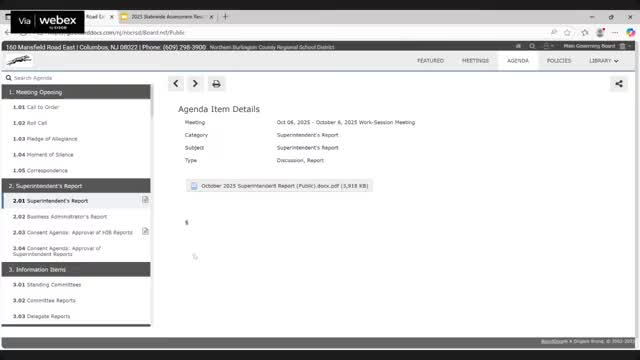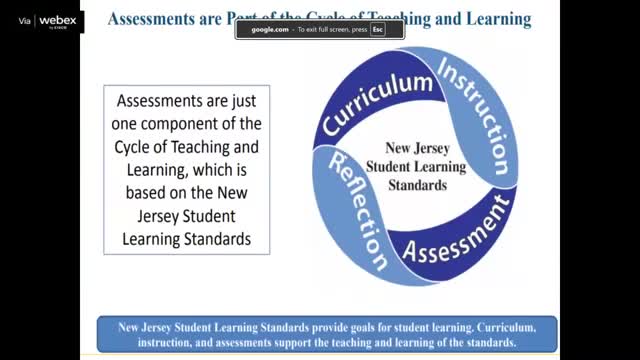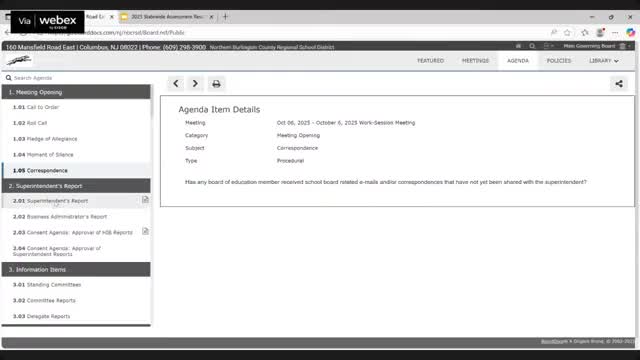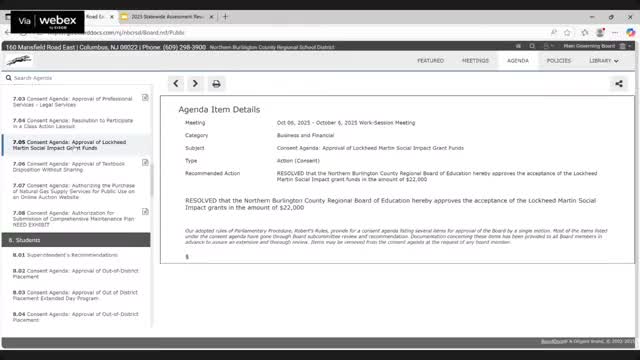Article not found
This article is no longer available. But don't worry—we've gathered other articles that discuss the same topic.

Board recounts Hill visits as federal Impact Aid flat funding means less for district budget

Northern Burlington reports mixed state assessment results; district outlines targeted interventions

Northern Burlington opens synthetic turf field; board approves girls wrestling coach and discusses girls flag football

